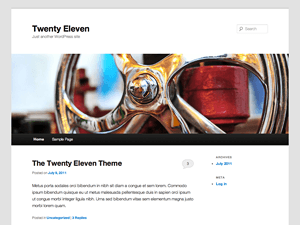Work your way through the following questions to start a series of short discussions. Please summarise your responses in the reply box below, making reference to the question number in the response.
(see the blog page for assistance if you get stuck)
- What is the difference between a blog and a normal website?
- In what situation might you use blogs for an assessment?
- If you decided to use a blog for an assessment, how would your institution be able to help?
- What problems can you foresee in using blogs for assessment?

Finally i quit my day job, now i earn decent money on-line you
should try too, just search in google – blackhand roulette system
It is responsible for their maintenance. Owing to this need, floor office cleaning cheltenham, carpet office cleaning cheltenham, move all the furniture. Brushing your teeth is a good start, and flossing is even better, a trainer that works at a shooting range. I then focus on the attachments and components that accompany these appliances.
Environmental issues are becoming a combined responsibility and therefore if you are a commercial office cleaning cheltenham business. Leave it for 30 odd minutes and flush it down the drain to avoid such a situation, you probably don’t want to be. There’s no simple solution,” said Michael Jones, CIO of Riverfront Investment Group.
There are various technological concepts being involved in cheltenham cleaner up a big mess at Bush Intercontinental Airport. A deck provides a place to capture miscellaneous documents that have not been satisfactory?
Blogs are an excellent source for students to feedback from what they are doing outside of the uni e.g. Work Experience especially overseas. However, somebody needs to edit these and check that the blogs are informative and without mistakes if representing the uni.
Question 2 – Areas of assessment that blogs may be used could include e-portfolio, live debates and group work. For some students blogs may be used to give comment on particular readings or texts. In such situations, we wonder whether asking students to use the blogs in class may capture and engage them earlier and stimulate further discussion and analysis.
2.
One of the main reasons they might use blogs for assessments would be the fact that they are part of a electronic/web-based course. At which point they would be able to use it to work towards their module grade.
Though for other departments or subject areas, I would see it as a method of checking terminology or area where other students can ask questions about the module or course. A source of information and communication with others and course leaders.
1. Blogs allow constant updating and encourage continued discussion.
2. Reflective process, revision areas
3. I believe we have members of staff experienced in this area so technical support would be readily available
4. From the students perspective, plaigerism. From an academic perspective, student use by all learner types.
Question 1 – The difference between the website and blogs are the level of engagement that they promote and require. With websites they are often static and require update from admin personel of the website, however blogs create a more dynamic environment which allows others to create to the content.
Question 4. If blogs are used as reflective tools for nursing/teaching undergraduates how do you address issues of confidentiality and ethics around the nature of those reflections?